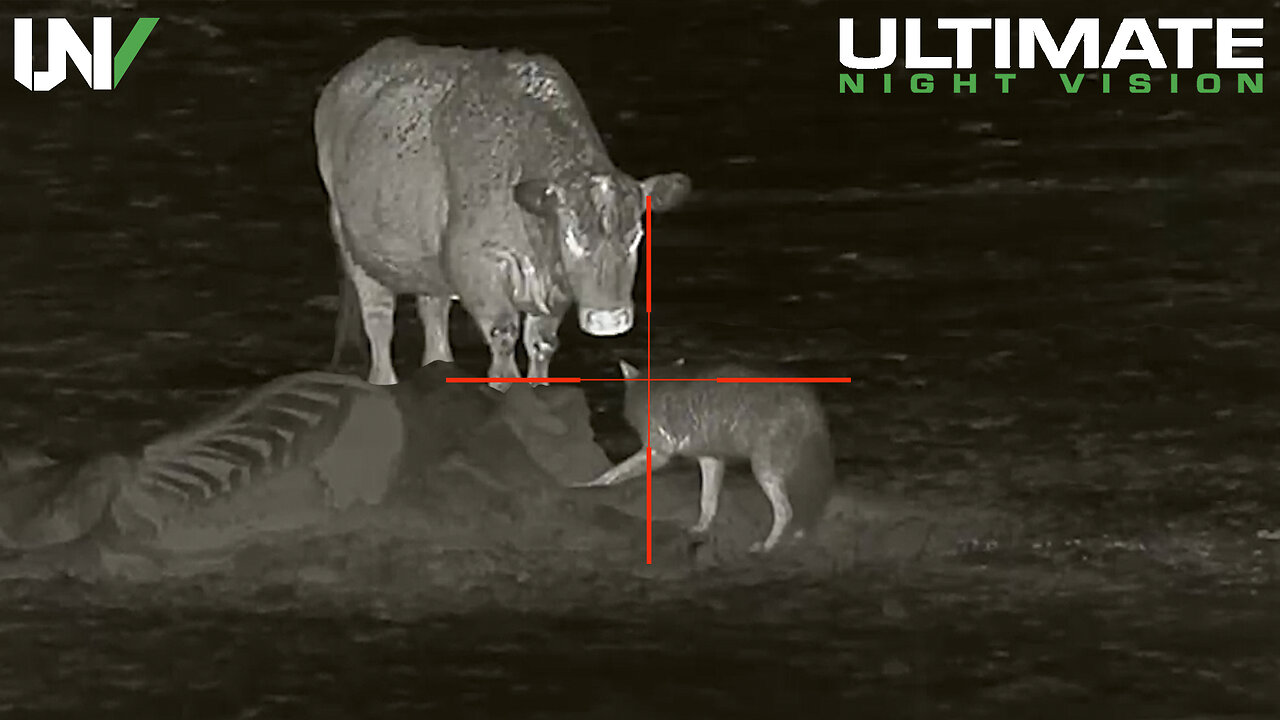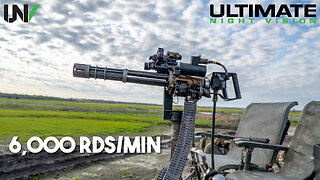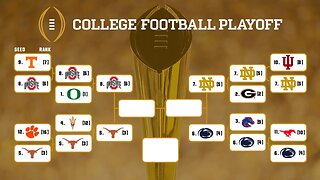Premium Only Content

Cattle Rancher Has a Big Problem - Hunting Predators with Thermal
Farmer hunts predators using thermal imaging.
Subscribe to O'Neill Ops: ► https://www.youtube.com/user/ONEILLOPS
Follow UNV on Instagram ► https://bit.ly/UNV-Instagram
InfiRay Outdoor Micro RH25 ► https://bit.ly/iRayMicroRH25atUNV
InfiRay Outdoor RICO RH50 MK1 ► http://bit.ly/RicoRH50atUNV
Why do we hunt coyotes?
Coyotes are presently the most abundant livestock predators in western North America, causing the majority of sheep, goat, and cattle losses. For example, according to the National Agricultural Statistics Service, coyotes were responsible for 60.5% of the 224,000 sheep deaths attributed to predation in 2004.The total number of sheep deaths in 2004 comprised 2.22% of the total sheep and lamb population in the United States, which, according to the National Agricultural Statistics Service USDA report, totaled 4.66 million and 7.80 million heads respectively as of July 1, 2005. Because coyote populations are typically many times greater and more widely distributed than those of wolves, coyotes cause more overall predation losses. The United States government agents routinely shoot, poison, trap, and kill about 90,000 coyotes each year to protect livestock.
Coyotes typically bite the throat just behind the jaw and below the ear when attacking adult sheep or goats, with death commonly resulting from suffocation. Blood loss is usually a secondary cause of death. Calves and heavily fleeced sheep are killed by attacking the flanks or hindquarters, causing shock and blood loss. When attacking smaller prey, such as young lambs, the kill is made by biting the skull and spinal regions, causing massive tissue and bone damage. Small or young prey may be completely carried off, leaving only blood as evidence of a kill.
In the absence of the harassment of coyotes practiced by rural people, urban coyotes are losing their fear of humans, which is further worsened by people intentionally or unintentionally feeding coyotes. In such situations, some coyotes have begun to act aggressively toward humans, chasing joggers and bicyclists, confronting people walking their dogs, and stalking small children. Non-rabid coyotes in these areas sometimes target small children, mostly under the age of 10, though some adults have been bitten.
-
 10:18
10:18
Ultimate Night Vision
1 year agoHunting Hogs with an M134 Minigun
2121 -
 LIVE
LIVE
Game On!
13 hours agoNotre Dame BATTLES Penn State for a trip to national title game!
946 watching -
 17:21
17:21
China Uncensored
11 hours agoYouTube Censorship Is Destroying China Uncensored
14.7K43 -
 12:10
12:10
MichaelBisping
22 hours agoBISPING: "UFC is BACK and STACKED!" | UFC 311 / UFC 312 (2025 BREAKDOWN)
28.7K4 -
 15:38
15:38
Misha Petrov
18 hours agoKim Kardashian’s DISTURBING "Santa Baby" Music Video
22.4K21 -
 23:28
23:28
Degenerate Jay
22 hours ago $1.11 earnedStar Ocean - The RPG Series That Deserves Better
11.9K2 -
 1:04:51
1:04:51
State of the Second Podcast
16 hours agoCarrying on Campus: Rights or Risks? (ft. Cheryl Todd)
7.86K2 -
 21:09
21:09
Dr David Jockers
21 hours ago $0.67 earnedAutophagy Fasting: What Happens to Your Body + Best Autophagy Enhancers
8.23K1 -
 2:31
2:31
BIG NEM
12 hours agoCOMPLETE EMASCULATION: His Relationship is TOAST!
24.7K1 -
 3:11:17
3:11:17
FreshandFit
10 hours agoRed Flags In American vs Foreign Girls
95.3K69